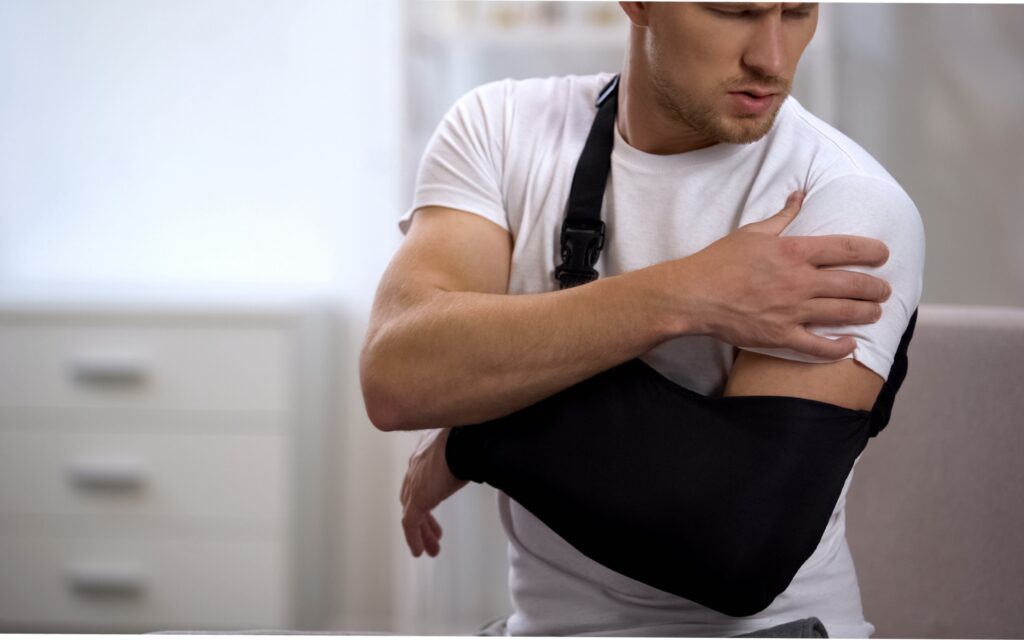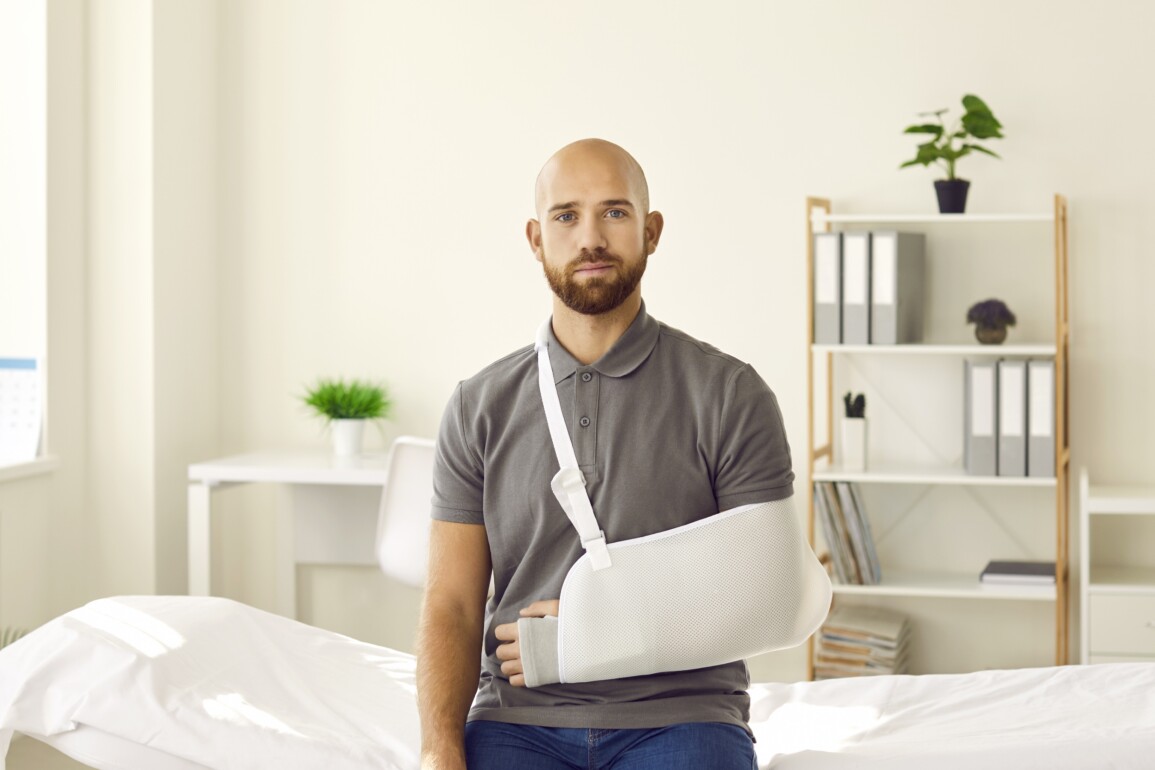Learning how to sleep after shoulder surgery can be a complex process. Read on to get the knowledge about sleeping after shoulder surgery and how to sleep with shoulder pain.
If you’re used to sleeping in a certain position (such as on the arm where you just had surgery) it can be difficult to adapt to something new. At the same time, you’re dealing with the pain and discomfort associated with recovery from a significant surgical procedure.
Mastering sleeping after shoulder surgery is crucial because it helps to accelerate the healing process. Your body needs sleep to repair skin, bone, and tissue. What’s more, sleep deprivation can often make your experience of pain and discomfort even worse.
Let’s take a look at some of the best tips for sleeping after shoulder surgery and dealing with the common issue of shoulder pain.
How to sleep after shoulder surgery: Types of shoulder surgery
The shoulders are an important part of the body, responsible for enabling all kinds of movement. However, like anything else, they can be subject to a host of problems, often associated with your joints, muscles, and bones.
The kind of shoulder surgery you get could have an impact on the methods you use to get a good night’s sleep. Let’s take a look at some of the most common types of shoulder surgery:
Rotator cuff surgery
Damage to the rotator cuff muscles and tendons represents some of the most common causes of shoulder injury. Rotator cuff surgery often involves either trimming or smoothing your shoulder tendon or reattaching the tendon to the arm bone. You can often simplify rotator cuff sling sleeping by keeping your body in a mostly upright position. For instance, using a recliner instead of a bed might be a good option.
Open surgical repair
This form of surgery is often conducted when the head of the humerus bone in the shoulder is treated with the assistance of an incision into the shoulder. Open surgery will require a decent amount of time to heal and may involve sleeping with a sling. You’ll need to avoid allowing your shoulder to rub against your mattress or pillow here, as this can cause increased pain and discomfort.
Arthroscopy
Sleeping after shoulder arthroscopy can be a little easier than sleeping following open shoulder surgery, because the surgical procedure isn’t as invasive. Instead, a thin device is inserted into an incision on the shoulder to assist with fixing injuries like fractures, and shoulder dislocation. You may need to sleep with a sling after this form of surgery and should avoid placing pressure on your shoulder.
Acromioclavicular joint surgery
This is the surgical procedure used to repair damage to the joint between the collar bone and shoulder. After this kind of surgery, it’s usually a good idea to sleep on your back, or on the opposite shoulder to where you had the surgery.
Your doctor will prescribe regular pain killers for you after most other kinds of shoulder surgery. Unless told otherwise, you should try and take a dose close to your bedtime, to get the maximum effect during the night.

Tips for sleeping after shoulder surgery
Figuring out how to sleep comfortably after shoulder surgery isn’t easy. When we sleep, it’s normal to move a hand under a pillow and roll naturally from one side to another. This can place unfortunate pressure on your shoulder.
If you sleep on a mattress which doesn’t provide the right level of support, this can also make the pain worse. Often, you’ll need to do a little experimentation to figure out how to sleep with shoulder pain after surgery, but the following tips can help:
Sleep in a recliner, or reclined position after shoulder surgery
If possible, sleep in a recliner or in a reclined position for the first few weeks following your surgery. If you don’t have a recliner chair, you can consider using wedge pillows. A number of pillows stacked on top of each other can also keep you positioned at the right angle.
Sleeping in a reclined position will reduce shoulder pain by minimizing pressure on the shoulder joint. This makes this form of sleeping particularly valuable following rotator cuff surgery and other surgical procedures involving your joints.
As the stiffness and pain in your shoulder begins to diminish over time, you can gradually ease yourself further down into a flat position for sleep. Eventually, you may be able to sleep on your shoulder, if it feels comfortable.
Take steps for pain relief after shoulder surgery
Sleeping with any kind of pain is extremely difficult. Choosing the right position for sleep after shoulder surgery is important, but you’ll also need to reduce your pain as much as possible. Your doctor should provide you with some medication, you can use to minimize pain and inflammation.
Make sure you take your pain relief regularly throughout the day, not just when you need it most at night. This can help to form a foundation for better sleep. Applying an ice pack or cold compress to your injured shoulder when it feels particularly uncomfortable, can be helpful too.
Before going to bed, numbing your shoulder slightly with an ice pack could be a good way to give you some relief – just enough to fall asleep. Apply the ice pack to your shoulder when you’re settling down to sleep. Remember not to apply ice directly to your skin. The cold pack should be wrapped in something soft, like a thin towel.
Sleeping with a sling after shoulder surgery
After most forms of shoulder surgery, you’ll be given a sling to wear. This helps to ensure your arm and shoulder joints remain in the correct place, while you’re healing. The sling will also reduce the effects of gravity on your shoulder, so you’re not placing as much pressure on the area.
Wearing the sling throughout the day, even if it’s annoying, will stop pressure from building up. Hence avoiding creating severe pain or aches by the end of the day.
You might also have to wear your sling to bed. Make sure you wear light clothing, so you don’t feel overheated by the addition of the sling. Position your arm with the sling as carefully as possible. It can help to place a pillow underneath the arm to give it an extra level of support.
Even if you’re wearing a sling to bed, remember you shouldn’t lie on the shoulder or side where you had your surgical procedure, as this can still cause significant pain.
How to sleep comfortably after shoulder surgery
One of the most important things you can do to improve your sleeping experience after surgery, is follow your doctor’s instructions. Your doctor or surgeon will be able to provide you with specific advice on how to care for your shoulder and accelerate the healing process.
Usually, you’ll be given medications to help manage the pain, which you should only take according to your doctor’s guidance. Do not take more of the pain medication, if you feel like you’re suffering, as this can increase your risk of an overdose.
You may also want to consider taking medications with food before going to bed, as some can cause stomach irritation on their own.
Do not take your medications with alcoholic drinks. This can increase your risk of toxic reactions, and may cause significant problems which require immediate medical attention.
Your doctor can also give you some more advice on how to reduce your discomfort. For instance, taking a walk before bed will help to improve blood circulation, which can minimize any feelings of pressure and inflammation in your shoulder.

How to sleep after shoulder surgery: common questions
People often wished they’d asked the surgeon the following:
- Can I sleep on my side after shoulder surgery? Usually, you shouldn’t sleep on the same side as your shoulder surgery until it’s fully healed. However, you may be able to sleep on the other side if you’re very careful.
- How long do you have to wear a sling to bed after shoulder surgery? Most people will wear their sling for around 4-6 weeks after a surgery, but this can differ depending on the kind of surgery, so speak to your doctor.
If you’re not certain, you can ask your doctor” What is the best position to sleep in after shoulder surgery?” Usually, they’ll advise you to sleep in an incline position, using a recliner, or a number of pillows propped behind your back. This will minimize the pressure on your shoulder.
For the first six weeks or so following your surgery, sleep in a reclined position with your arm in its sling to keep it stable during sleep. The sling will also help to prevent you from accidentally placing your arm into uncomfortable positions.
The recline position will require you to keep your hips and legs straight on the bed. Your neck and back should be in an upright position. You can gradually reduce the angle as you heal. Although it might be uncomfortable to sleep like this at first, you will eventually get used to it.
Other options on how to sleep after shoulder surgery include:
Sleeping on the opposite side after shoulder surgery
About 74% of the population sleep on their side. Unfortunately, sleeping on your side can be problematic after surgery. You won’t be able to sleep on the side where you had your surgery until your shoulder has fully healed.
It’s important to avoid sleeping on the opposite side until a few weeks after the surgery. It can cause problems with the healing process, as you might involuntarily move the side operated on.
Wait until you get the go-ahead from your doctor to sleep on your side. Be careful to ensure your arm has enough support in any position you choose. Remember to place pillows around you in the bed if possible, to prevent you from rolling onto the wrong side.
Sleeping on your back after shoulder surgery
Sleeping on your back is perhaps the second safest way to rest after shoulder surgery. Best option is sleeping at an incline. You should usually avoid sleeping straight on your back after your surgery. This can still place additional pressure on your shoulder.
Once you know it’s safe to sleep on your back, you can gradually ease into the position.
How to sleep after shoulder surgery: Remember your rehabilitation
Figuring out how to sleep after shoulder surgery or with shoulder pain can be complex, but it’s something many people need to address over the course of their lives. In the weeks after surgery you’ll be given instructions for the best possible shoulder rehabilitation.
Remember, pay attention to the instructions given by your doctor, and try not to place too much pressure on the shoulder joint. Follow your rehabilitation with your physiotherapist very carefully.
Doing the exercises as instructed by your physiotherapist will ease the pain and discomfort you experience after surgery or after any shoulder injury. Consequently giving you your much needed rest at night.
Siestio. Sleep Matters.
Now read these:
—How to sleep after liposuction
—How to sleep with tooth pain
—How to sleep in hot weather
Medical disclaimer
You must not rely on the information provided on our website as an alternative to medical advice from your doctor or other healthcare professionals. For more information read our full disclaimer here.







